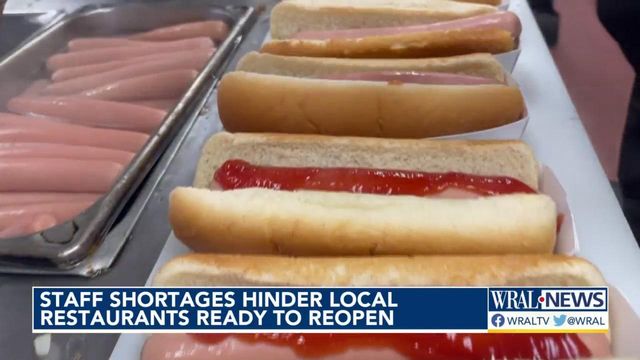Restaurants need workers, but not enough workers seem to need those jobs
Larry Cerilli, co-owner of Snoopy's Hot Dogs, said Monday the restaurant is down 24 workers at their four locations in Raleigh.
Posted — UpdatedTo stay in business, Cerilli said he is working 70 hours a week. The staff is also working overtime.
"We’re all trying to pitch in to get through the day. And the answer is we just need some employees," Cerilli said.
Snoopy's isn't alone.
At Humble Pie in downtown Raleigh, special orders are not being accepted due to staffing shortages and to maintain efficiency, according to a message printed on menus.
The manager of a Dunkin' Donuts in Roanoke Rapids told WRAL News that the restaurant couldn't open one day last week because no one showed up for work.
Minimum wage across North Carolina is $7.25 an hour, with workers making $290 a week.
With unemployment benefits, people can make up to $650 a week. But people have to prove they're searching for a job to keep the weekly benefits coming.
Federal job benefits have been extended until September.
Cerilli said Snoopy's pays $9 per hour, but it hasn't helped with recruitment. The restaurant is looking to hire 24 employees.
"Right now with COVID and with some government assistance, there are just some people who are not in the need for a job right now," Cerilli said.
Other former restaurant employees are either scared to return to work or have moved on to other industries.
"I think where a lot of people are focused is on the unemployment benefits," North Carolina Restaurant Association board member Amber Moshakos said. "How do we create an unemployment structure that helps protect people, but at the same time encourages them to get back to work?"
Related Topics
• Credits
Copyright 2024 by Capitol Broadcasting Company. All rights reserved. This material may not be published, broadcast, rewritten or redistributed.






